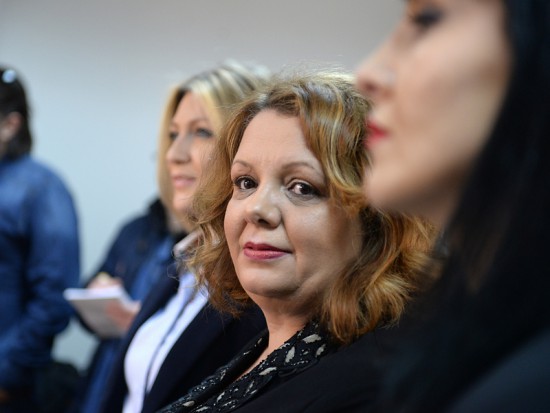Macedonia Special Prosecution ‘Seriously Probing’ Top Officials
After its first six months of investigating high-level crime, Macedonia’s new Special Prosecution is on the right track despite facing serious obstructions, observers believe.
With 30 cases under investigation and 80 suspects being probed for crimes ranging from election-rigging to large-scale bribery and tax evasion, the Special Prosecution is fulfilling its assigned task of digging into alleged criminal activity by high-ranking state officials, observers told BIRN.
The Special Prosecution filed a 13-page report last week to parliament and the prosecutor’s council with the first comprehensive data on the cases and suspects it has started to investigate. Chief Special Prosecutor Katica Janeva also announced that the public can expect the first criminal charges very soon.
Political analyst Andreja Stojkovski from the NGO Macedonian Centre for European Training said that the Special Prosecution has shown itself “up to the task”. “The seriousness is demonstrated through the criminal offences that are being investigated. A rough estimate of mine shows that the 80 suspects might get a total of 406 years in jail, if all the envisaged punishments are seen cumulatively,” Stojkovski said.
Stojkovski insisted that all obstructions to the work of the Special Prosecution must stop, referring complaints from Janeva in the report that the regular prosecution office led by Marko Zvrlevski is stalling the transfer of several cases that she has requested from him and that she has legal right to take over. Janeva said in the report that even if the regular prosecution continues to refuse cooperation, the Special Prosecution will launch the same cases on its own, based on the thousands of tapes and transcripts of illegally-recorded, incriminating wiretapped conversations of state officials that the opposition Social Democrats handed to them at the start of the year.
Political analyst Albert Musliu said that this could cause problems for the regular prosecution. “This will create a situation in which there will be two cases for identical criminal allegations. The responsibility, if that happens, will fall on those who do not respect the law and refuse to hand over the cases [to the Special Prosecution],” Musliu said.
According to the report, the Special Prosecution suspects six people of illegal wiretapping, ten for electoral fraud, 37 people for misuse in office, twelve for hampering the voter’s freedom of choice, as well as other crimes. Janeva also said last week that additional 120 cases are in the pre-investigation phase.
Macedonia’s Special Prosecution was formed in September to investigate allegations of high-level wrongdoings and corruption. It was set up as part of the EU brokered political crisis accord reached last summer. Ever since it started its work, Janeva has complained that it is under pressure from various other institutions that are seen as being under the influence of the ruling VMRO DPMNE party of recently resigned Prime Minister Nikola Gruevski.
In February, the Special Prosecution pinpointed the former interior minister and transport minister as well as the secretary general of the government as the main suspects for organising electoral fraud during polls in 2013. The court however rejected its request to keep them in detention.
The Special Prosecution’s first report comes against the backdrop of the continuing crisis in Macedonia, revolving around opposition claims that Gruevski ordered the illegal surveillance of some 20,000 people, including his own ministers. The Social Democrats started releasing batches of covertly recorded tapes last February. The opposition insists the tapes contain incriminating evidence against many senior officials, including proof of high-level corruption, the government grip’s on the judiciary, prosecution, businesses and media, politically-motivated arrests and jailings, electoral violations and even an attempted cover-up of a murder of a man by a police officer.
Gruevski, who has held power since 2006, and stepped down in January under an EU-brokered agreement, says the tapes were “fabricated” by unnamed foreign intelligence services and given to the opposition to destabilise the country.
21 March 2016

